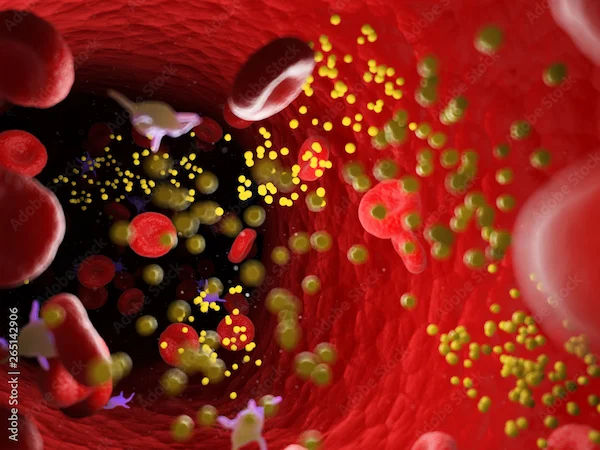Symptoms of Lead Poisoning
Know about the lead poisoning, symptoms, causes, risk factors and how to prevent lead poisoning, workplace safety and treatment options and more.

Written by Dr. Rohinipriyanka Pondugula
Reviewed by Dr. D Bhanu Prakash MBBS, AFIH, Advanced certificate in critical care medicine, Fellowship in critical care medicine
Last updated on 13th Jan, 2026

Introduction
Lead poisoning is a serious health concern that can affect people of all ages, especially children. Since lead is a toxic metal, exposure to even small amounts over time can cause harmful effects on the body. Recognising the symptoms early can help prevent long-term damage.
In this article, we’ll discuss: What is lead poisoning, common symptoms in adults and children, causes and risk factors, how to prevent and manage lead exposure and when to seek medical help
What is Lead Poisoning?
Lead poisoning occurs when lead builds up in the body over time, usually through repeated exposure to lead-contaminated substances. Lead can enter the body through:
Inhalation (breathing in lead dust or fumes), Ingestion (eating or drinking contaminated food, w
later, or objects)
Once inside the body, lead travels through the bloodstream and gets stored in bones, teeth, and soft tissues, leading to various health problems.
Consult a General Physician for Personalised Advice
Symptoms of Lead Poisoning
Lead poisoning often develops slowly, and symptoms may not appear immediately. In some cases, people may not realise they’ve been exposed until severe symptoms arise.
Symptoms in Children
Children are more vulnerable to lead poisoning because their bodies absorb lead more easily. Even low levels of lead exposure can affect a child’s growth and brain development. Common symptoms include:
Learning difficulties (trouble focusing, lower IQ)
Behavioural problems (hyperactivity, irritability, aggression)
Fatigue and sluggishness
Loss of appetite and weight loss
Abdominal pain and vomiting
Constipation
Hearing loss
Delayed growth
Seizures (in severe cases)
Symptoms in Adults
Adults exposed to lead may experience:
High blood pressure
Joint and muscle pain
Headaches
Memory and concentration problems
Mood disorders (depression, irritability)
Abdominal cramps
Reduced sperm count (in men)
Miscarriages or premature births (in pregnant women)
Causes and Risk Factors
Lead poisoning usually occurs due to exposure in everyday environments. Common sources include:
Old lead-based paint (common in homes built before 1978)
Contaminated water (from lead pipes or plumbing)
Certain jobs (battery manufacturing, construction, painting)
Traditional remedies or cosmetics (some contain lead)
Imported toys, jewellery, or ceramics (may have lead-based paint or glaze)
Soil contamination (near highways or industrial areas)
Children are at higher risk because they often put objects in their mouths and absorb lead more easily.
How to Prevent Lead Poisoning?
Preventing lead exposure is the best way to avoid poisoning. Here’s what you can do:
For Homes with Lead Paint
If your home was built before 1978, get it tested for lead.
Keep painted surfaces in good condition (peeling paint increases exposure).
Use wet cleaning methods to reduce dust.
Safe Drinking Water
Run cold water for 30 seconds before drinking if pipes are old.
Use a water filter certified to remove lead.
Healthy Diet
Eating foods rich in iron, calcium, and vitamin C can help reduce lead absorption.
Examples: Milk, yoghurt, leafy greens, citrus fruits, beans, and lean meats.
Workplace Safety
If you work with lead, follow safety guidelines (wear masks, wash hands, change clothes before going home).
When to See a Doctor?
If you or your child experiences symptoms of lead poisoning, consult a doctor immediately. A simple blood test can confirm lead levels in the body. Early detection helps prevent complications.
Treatment Options
Mild cases: Remove the source of lead and monitor health.
Severe cases: Chelation therapy (medication to remove lead from the blood).
Final Thoughts
Lead poisoning is preventable with awareness and precautions. If you suspect exposure, getting tested is crucial, especially for children, as lead can cause irreversible damage to their development.
Consult a General Physician for Personalised Advice
Consult a General Physician for Personalised Advice

Dr. Syed Ismail Ali
General Practitioner
7 Years • MBBS
Hyderabad
Apollo 24|7 Clinic, Hyderabad

Dr Syed Mateen Pasha
General Physician
2 Years • MBBS
Bengaluru
PRESTIGE SHANTHINIKETAN - SOCIETY CLINIC, Bengaluru

Dr. Vivek D
General Physician
4 Years • MBBS
Bengaluru
PRESTIGE SHANTHINIKETAN - SOCIETY CLINIC, Bengaluru

Dr. Srujana Mulakalapalli
General Physician/ Internal Medicine Specialist
5 Years • MBBS, MD (GENERAL MEDICINE)
Bengaluru
Apollo Medical Center, Marathahalli, Bengaluru
(25+ Patients)

Dr. Harshendra Jaiswal
General Physician/ Internal Medicine Specialist
12 Years • MBBS , MD (General medicine)
Kolkata
108 DHANA DHANVANTARI Clinic, Kolkata
(25+ Patients)




